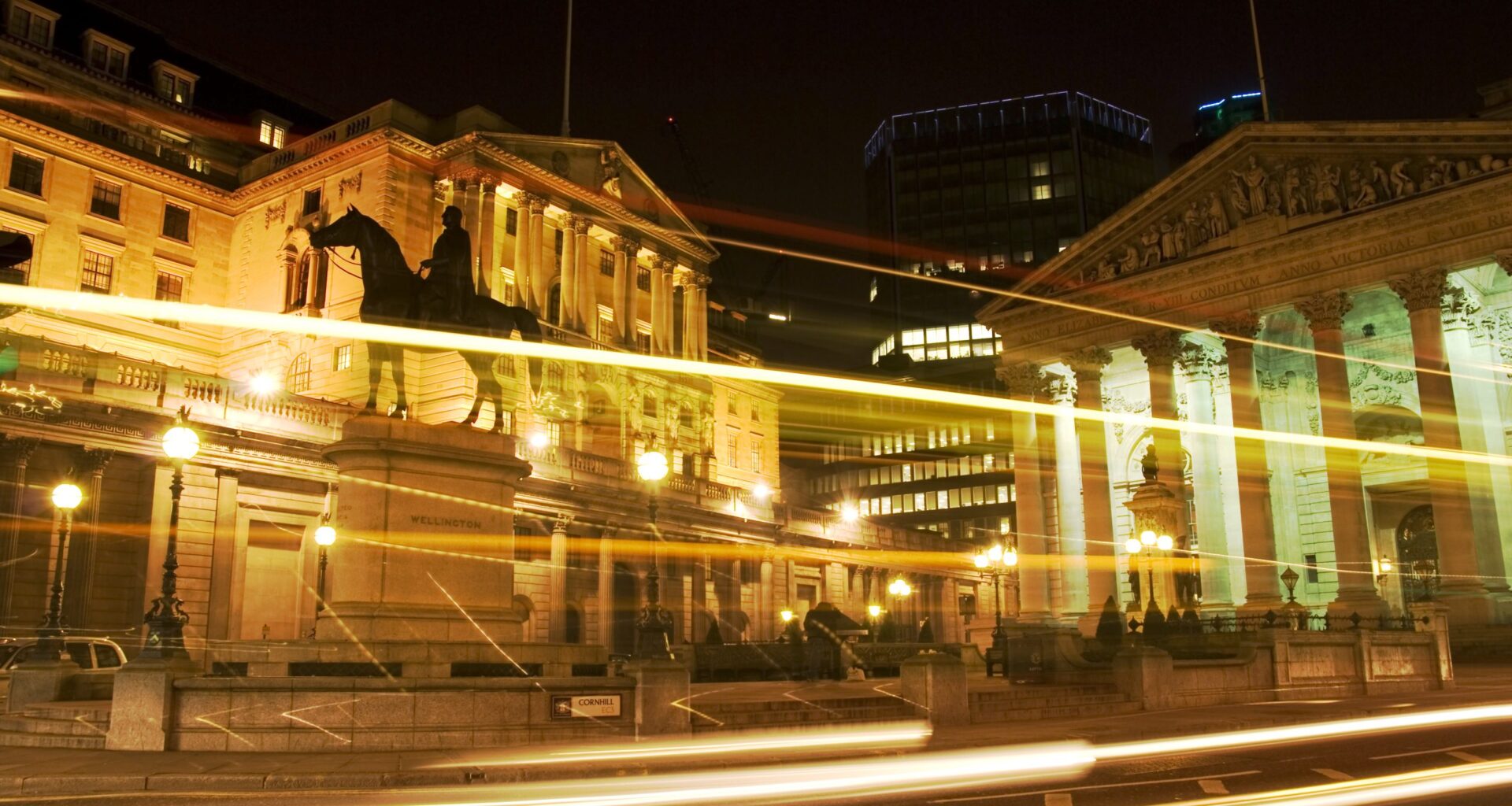The Bank of England now appears on course to deliver an interest rate cut at its 18 December meeting, supported by fresh evidence that inflation has peaked and underlying price pressures are easing.
Markets See 73% Chance of December Rate Cut as UK Jobless Rate Climbs
October’s CPI reading of 3.6% confirms a gradual cooling trend, even as food inflation rebounded to 4.9%, unsettling more hawkish MPC members. Deutsche Bank’s Sanjay Raja highlighted the importance of falling services inflation (4.5%), a key metric for the BoE in assessing domestic inflation persistence.
ING’s James Smith argues that while short-term food price volatility may unsettle policymakers, the longer-term trajectory points lower. He notes falling eurozone food inflation and stabilising producer prices suggest supermarket prices are nearing their peak.
At the same time, the UK labour market is showing signs of cooling, with private-sector wage growth “easing rapidly” and GDP growth underperforming expectations — both reinforcing the argument for easing monetary policy to prevent unnecessary economic drag.
The MPC remains finely balanced after a 5–4 vote to hold rates previously. Analysts widely agree the deciding factor will be Governor Andrew Bailey, who is increasingly viewed as favouring a cautious cut to support weakening growth.
Looking further ahead, NIESR expects inflation to continue trending down, forecasting two rate cuts next year, but warns that elevated wage growth and inflation expectations could slow the pace of easing.

If anyone reads this article found it useful, helpful? Then please subscribe www.share-talk.com or follow SHARE TALK on our Twitter page for future updates.
All information is provided on an as-is basis. Where we allow Bloggers to publish articles on our platform please note these are not our opinions or views and we have no affiliation with the companies mentioned
